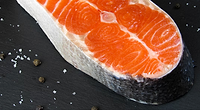€91 Million of Fraudulent Food Seized Through EU-Wide Operation in 2024

Image credit: Rodrigo Abreu via Unsplash
As a result of Operation OPSON 2024—an EU-wide coordinated effort targeting fraudulent and counterfeit foods—22,000 tons of food and 850,000 liters of beverages (mostly alcohol), totaling €91 million, were removed from the market.
Operation OPSON has been executed annually for the past 13 years. Led by Europol, other participants include the EU Directorate-General for Health and Food Safety (DG SANTE), the EU Directorate-General for Agriculture and Rural Development (DG-AGRI), national authorities from 29 European countries, and industry.
As a result of this year’s Operation OPSON:
- 11 criminal networks were dismantled
- 104 arrest warrants were issued
- 184 search warrants were issued
- 278 people were reported to judicial authorities
- 5,821 checks and inspections were performed.
Food fraud trends recognized across Europe included the sale of expired food stolen from waste disposal companies, reintroduced to the market with reprinted expiration dates and new labels.
Additionally, olive oil and wines with a protected designation of origin (PDO) were the commodities most frequently counterfeited or fraudulently designated.
Across Europe, several notable arrests and seizure occurred. For example, in Spain, the Spanish Civil Guard, in collaboration with the Italian National Police and Europol, arrested four people who owned a canning company and seized approximately 120,000 cans of tuna and 45,000 liters of oil. These products were much lower quality than indicated on the label and were being sold at significantly lower price points than their competitors selling authentic goods. In another case, a Spanish pickle production company was investigated for selling products containing illegal chemicals like dyes and preservatives; 80 tons of product, much of which was already prepared for sale and consumption, were seized. The Spanish Civil Guard also acted against oil, ham, and cheese counterfeiters.
In Italy, the National Police’s Anti-Adulteration and Public Health Units identified and seized approximately 42 tons of adulterated oil that was falsely labeled as Italian extra virgin olive oil, and was either ready for distribution or had already entered the market. Subsequently, officers searched warehouses and other locations, from which they seized 71 tons of oily substances and 623 liters of chlorophyll intended for the adulteration of oils. The total value of the seized items—including packaging equipment, labels, one transport vehicle, forklifts, and electronics—amounted to €900,000. Also in Italy, the National Police dismantled a criminal network dedicated to counterfeiting wines with a PDO or protected geographic indication (PGI), resulting in the seizure of 60,000 liters of counterfeit wine.
Moreover, an investigation led by the French National Police, in collaboration with the Italian National Police and the Swiss Federal Police, supported by Europol and Eurojust, led to the dismantling of a criminal network counterfeiting French PDO wines in Italy. The criminal network faked French red wine, which was forged in Italy and exported globally, charging up to €15,000 per bottle. The operation led to six arrests and seizures valued at €1.4 million, as well as the seizure of more than €100,000 in cash and documents.
In Sweden, the Swedish Food Agency, the Swedish Police, and other Swedish authorities worked together with EU officials to seize more than 600 tons of rice of a lower quality than was indicated on the label. Most of the rice was imported from countries outside the EU, frequently India and Pakistan.
Looking for a reprint of this article?
From high-res PDFs to custom plaques, order your copy today!






